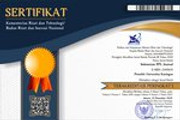THE ASSESSMENT AND EVALUATION IN TEACHING ENGLISH AS A FOREIGN LANGUAGE
Abstract
This article is focusing on assessment and evaluation of English as a foreign language learning (EFL). These are essential components teaching and learning in English language arts. Both assessment and evaluation are the critical parts of effective literacy development; therefore, it is important for classroom teachers to know how to evaluate English language learners’ progress. Without an effective evaluation program it is impossible to know whether students have learned, whether teaching has been effective, or how best to address student learning needs. The overall goal of assessment is to improve student learning. Assessment should always be viewed as information to improve student achievement. One could look at assessment and evaluation as the journey (assessment) versus the snapshot (evaluation). The assessment and evaluation literacy needs from the learner’s perspective is also an important part of an instructional program. The needs of assessment and evaluation process can be used as the basis for developing curricula and classroom practice that are responsive to learners’ needs. It encompasses both what learners know and can do and what they want to learn and be able to do. Learners need opportunities to evaluate their progress toward meeting goals they have set for themselves in learning English.
Keywords: assessment, evaluation, foreign language learning, teaching, curriculum
Keywords: assessment, evaluation, foreign language learning, teaching, curriculum
Full Text:
PDFDOI: https://doi.org/10.25134/ieflj.v1i2.629
Refbacks
- There are currently no refbacks.

This work is licensed under a Creative Commons Attribution-ShareAlike 4.0 International License.

